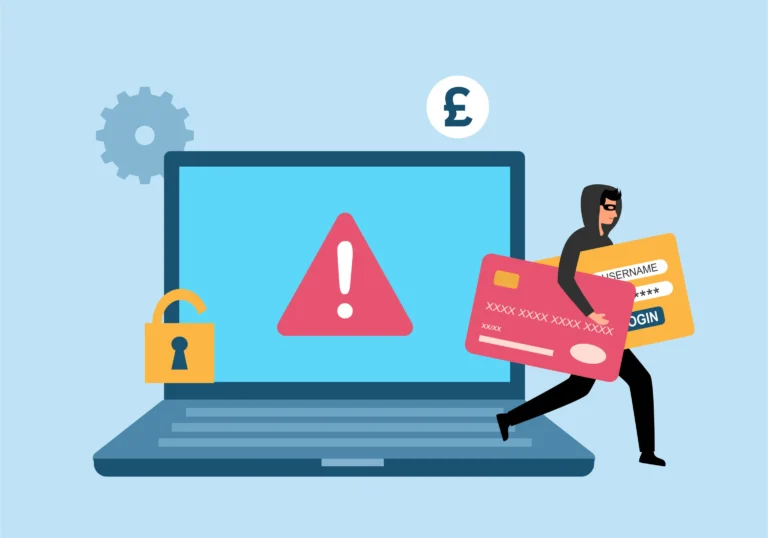Table of Contents
Getting scammed online can be an emotionally draining and financially devastating experience. Whether it happened through a phishing email, a romance scam, or a fake investment opportunity, victims are often left feeling confused, ashamed, and unsure of what to do next. This guide offers a clear, step-by-step recovery plan designed to minimize further damage, increase the chances of fund recovery, and protect you from future scams.
Immediate Actions: Stopping the Financial Bleed and Securing Your Digital Life
Halting Payments and Contacting Your Bank
The first and most urgent step after realizing you’ve been scammed is to stop all further communication with the scammer. Contact your bank, credit card company, or payment provider immediately and inform them of the situation. Many institutions can halt pending transactions or initiate chargeback procedures, especially for credit card payments. If you know the scammer’s bank details, report them directly to that institution as well.
Protecting Your Accounts and Devices
If any passwords were shared or if you clicked on suspicious links, change your login credentials across all online accounts, prioritizing financial services and email. Use strong, unique passwords. Run a complete antivirus scan to ensure your system hasn’t been compromised with malware or spyware. Continue to monitor all your accounts for any unusual activity in the days and weeks that follow.
Reporting the Crime: Your Essential Duty to Authorities
Reporting in the USA: Key Federal Authorities
In the United States, victims should report scams to the Federal Trade Commission (FTC). Another critical channel is the Internet Crime Complaint Center (IC3), which helps law enforcement identify broader scam trends. You can also use USAGov’s fraud reporting tools to find relevant local and federal resources.
Reporting in the UK: National Centres and Immediate Help
UK residents should report the crime to Action Fraud, the national fraud and cybercrime reporting centre. For additional help, Citizens Advice can guide you through reporting and next steps. If you’re in immediate danger or face threats, call 999.
Global Reporting and Documentation
If you’re outside the US or UK, report the scam to your local police to obtain a case number. Retain all evidence—emails, messages, payment receipts, and relevant documents—as they are critical for investigation and recovery. Victims should also report the fraud to platforms where the scam occurred, such as Facebook, Instagram, WhatsApp, or the dating site in question.
Navigating Money Recovery: Strategies for Recouping Lost Funds
Direct Financial Institution Contact
The likelihood of recovering funds depends greatly on how the money was sent. Credit card payments may be reversible through chargebacks. Bank transfers are more difficult, but early reporting increases the odds. Always contact your financial provider with complete documentation.
Advanced and Global Recovery Tools
Services like Cybera specialize in helping victims of cybercrime, particularly with cross-border asset recovery. For crypto scams, tools like Chainalysis Reactor or contacting the crypto exchange may assist in tracking assets. A table could be inserted here to show estimated recovery success rates by payment method:
| Payment Method | Likelihood of Recovery |
|---|---|
| Credit Card | High (60-80%) |
| Bank Transfer | Moderate (30-50%) |
| Gift Cards | Low (<10%) |
| Cryptocurrency | Very Low (<5%) |
Protecting Your Identity and Future: Beyond the Initial Attack
Monitoring and Repairing Damage
Scammers may have accessed more than just your money. If you suspect your identity was compromised, consider placing a fraud alert or credit freeze with major credit bureaus. Use an identity monitoring service to track misuse of your personal data. Continue scanning your devices and update all security software.
Avoiding Re-victimisation: Beware of ‘Recovery Scams’
Recognising the Threat of Recovery Scams
A growing number of fraud victims are being targeted again by so-called ‘recovery services’ that offer to retrieve lost funds—for a fee. These are often scams themselves. Be skeptical of any unsolicited offers promising guaranteed recovery, especially if they require upfront payment or ask for personal information.
The Power of Education
One of the best defenses is education. Stay informed about current scam tactics by following updates from trusted authorities like the FTC, IC3, and consumer protection websites. Familiarize yourself with common scam types, including romance scams, tech support fraud, and phishing attacks.
The Power of Documentation: Building Your Case
What to Save and Why
Meticulously collect and save all details of the scam: screenshots of conversations, email headers, transaction receipts, and any identity information you shared. This documentation is essential when filing official reports, disputing charges with banks, or taking legal action. Organizing this data can also assist others by contributing to public scam awareness databases.
Long-term Vigilance and Prevention
Continuous Learning and Awareness
Avoiding future scams requires ongoing awareness. Regularly read updates from FTC, IC3, and Scamwatch for trends and safety tips. Consider subscribing to alerts from cybercrime watchdogs or consumer protection agencies. Staying informed is the best way to outsmart scammers.
Conclusion: Taking Back Control After a Scam
Recovering from an online scam can feel like climbing out of a dark hole—but you are not powerless. With fast action, proper reporting, and long-term prevention, you can minimize harm and help others do the same. Whether or not the money is recovered, your report contributes to a larger effort to track, block, and prosecute scammers worldwide. You’re not alone, and every action you take strengthens the global fight against online fraud.
Sources:




1 Comment
Hey people!!!!!
Good mood and good luck to everyone!!!!!